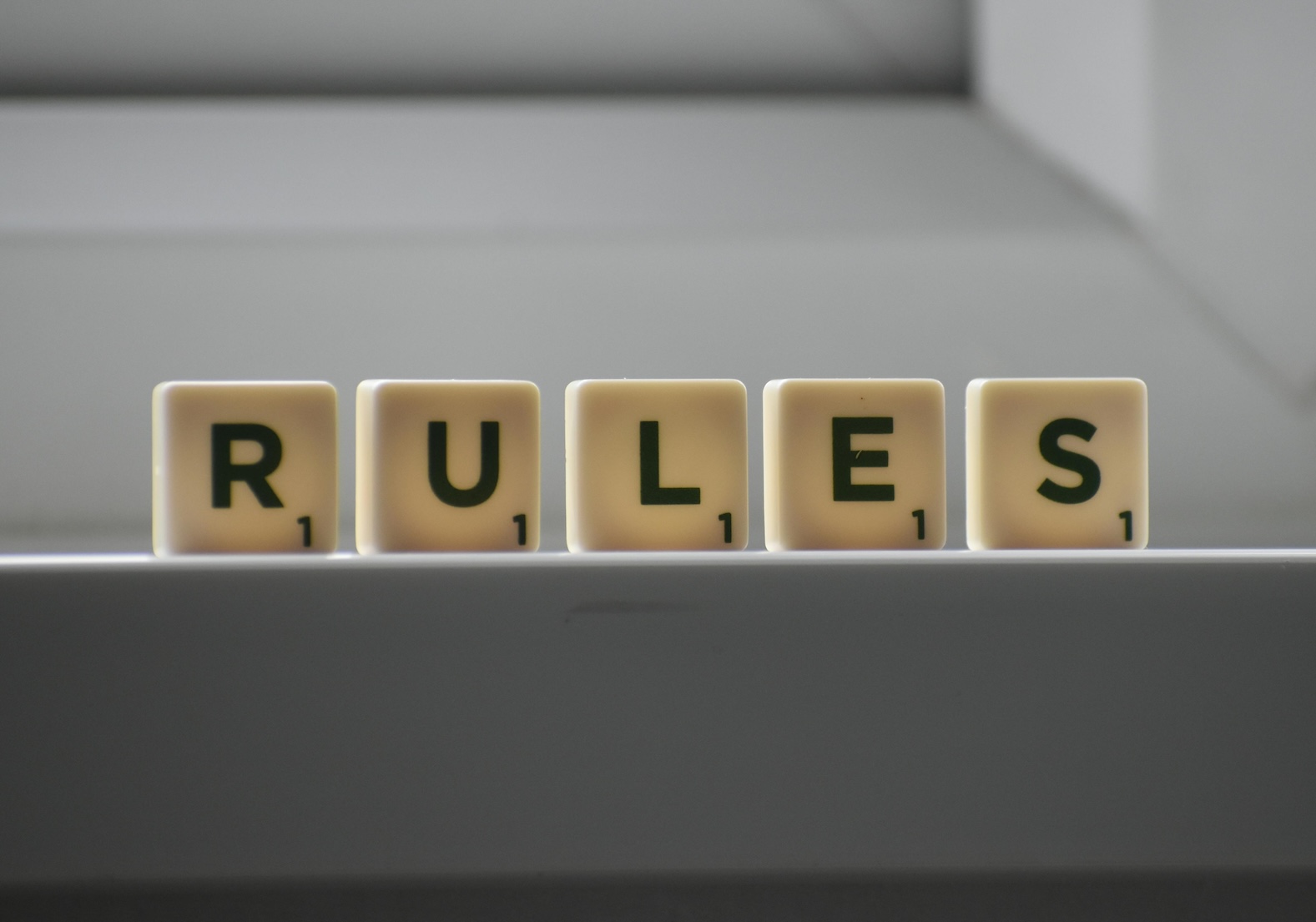What Are Healthy Relationship Boundaries?
If there’s one thing that can ruin a good relationship, it’s not setting healthy boundaries. Relationship boundaries are important for two reasons. First, they help to protect you both physically and emotionally. Second, they enable both people to maintain a balance of closeness and independence.

If there’s one thing that can ruin a good relationship, it’s not setting healthy boundaries. Relationship boundaries are important for two reasons. First, they help to protect you both physically and emotionally. Second, they enable both people to maintain a balance of closeness and independence.
So, how do you know when you’ve crossed the line? And how do you communicate what kind of behavior is and isn’t acceptable? Read on for our top tips and our relationship boundaries checklist. We also share some relationship boundary examples to help you understand exactly what we’re talking about.
We talk about ‘relationship boundaries’ in this post, but a lot of the content can also be applied to the early stages of dating.
What are healthy relationship boundaries?
Healthy boundaries are limits that enable us to maintain our own sense of self, as well as protect our energy levels, mental health, and physical well-being. They are essentially expectations around what we consider to be acceptable and unacceptable behavior towards us.

Furthermore, healthy relationship boundaries are behaviors that relate to the interactions between you and your partner. It’s important to be aware that they aren’t always the same for everyone. This means that what may work for one person, may not work for another.
Healthy boundaries are a core building block of any healthy relationship. Without them, a relationship can quickly become toxic, with one partner feeling powerless or taken for granted.
Examples of setting boundaries in relationships
Let’s now take a look at some specific examples of setting boundaries in relationships. These are all examples of healthy boundaries.
1. Being treated with respect.
We mentioned that not all boundaries are the same in a relationship, but this is one that everyone should expect. Establishing and communicating clear boundaries around respect helps to ensure that both partners feel valued and appreciated.
2. Expecting your partner to be on time.
If you value timeliness and your partner calls an hour later than they said they would, it’s important to discuss this and explain that being on time is a trait that is important to you.
3. Setting aside time for your hobbies.
Some people have hobbies that take up a lot of time. If this is the case with you, make sure that they know how much time you expect to spend on your hobby each week to ensure that your partner is on the same page.
4. Being able to express your feelings openly.
This is another boundary that should be present in a healthy relationship. Making sure that your partner understands the importance of you both expressing their feelings openly is another example of an essential, not optional, relationship boundary.
5. Indicating when you are comfortable sleeping with your partner.
Establishing boundaries around physical intimacy is also important. This means that you should both be comfortable discussing when you are both ready to take the next step. If you only have sex with people you are exclusively dating, that’s a clear relationship boundary.
6. Letting your partner know that you need your own space to work.
When it comes to jobs and studies, everyone has different preferences. Letting your partner know that you prefer to work in separate rooms is just one example of a relationship boundary relating to this part of your life.

7. Setting aside alone time.
Everyone needs time to themselves. Even the most extroverted extroverts! Letting your partner know that you need alone time to recharge after socializing is an example of a relationship boundary.
The boundaries above are just examples to help give you an idea of what relationship boundaries look like. But each relationship and individual is different, so they are by no means boundaries that everyone should set.
How to set healthy relationship boundaries checklist
Now, we’re going to share a relationship boundaries checklist designed to communicate your limitations and preferences.
1. Set boundaries that protect your well-being.
Ultimately, they should have a positive impact on your life as they are designed to protect you. Note that you might not always feel comfortable during the process of setting boundaries itself! This comes with practice, though.
2. Don’t set boundaries as a test.
It’s never a good idea to set a boundary just to see if your partner can live up to it. You can end up either pushing your partner away for no good reason or creating unnecessary tension in the relationship.
3. Communicate your boundaries clearly.
Setting boundaries isn’t the time to be vague and beat around the bush. Let your partner know exactly what is acceptable and unacceptable behavior. This should come from a loving place rather than a place of anger or resentment.

4. Don’t set boundaries that you aren’t going to stick to.
If you’ve set a boundary, you’ve done it for a reason, and if your partner isn’t able to respect a boundary, it’s time to move on and find someone who will. To maintain your self-respect, you should walk away if your partner doesn’t respect your boundaries.
5. Don’t apologize when setting boundaries.
Everyone has ways they want to be treated in a relationship, and there’s no reason to be ashamed or timid about it. Set boundaries with confidence.
6. Be open to negotiating boundaries.
While boundaries should be firm, it is also important to remember that relationships are a two-way street. You might find that your partner has valid points that you hadn’t considered. You shouldn’t compromise if something is important to you, but you should keep an open mind when you’re discussing boundaries.
7. Don’t assume that the conversation will go smoothly.
There’s a chance that your partner will accept the boundary right away, but they might want you to explain why certain behavior is important to you. Think about this in advance in case they want to dig deeper.
If you follow our relationship boundaries checklist, you’ll be well on your way to laying the foundations for a healthy relationship.
Unhealthy relationship boundaries
It’s worth noting that, in some cases, boundaries can be unhealthy, often leading to one person being controlling. Unhealthy boundary examples in a relationship might include one partner trying to control what the other wears, who they spend time with, or what they do for fun.
Another unhealthy relationship boundary is if someone expects their partner to be available 24/7, regardless of work or family commitments. Or constantly checking in on each other, monitoring social media activity, or reading text messages/emails without permission.
Unhealthy boundaries should be addressed as soon as possible. They tend to get worse, not better, with time, so it’s important to manage the situation before things get out of control. If you feel like any of your boundaries are being violated, talk to your partner and seek support from others if needed.
When your boundaries are crossed
Most of us have had the unfortunate experience of having our boundaries crossed by a partner, and most of us will have crossed a partner’s boundary, too, potentially by accident.
There’s a big difference between the two. Unintentional boundary crossing can be addressed with understanding, patience, and communication. But if someone wilfully crosses a clear boundary without consideration for your feelings, that’s another story. There’s no excuse for intentional boundary crossing – it shows a lack of respect and care, which is unacceptable.
Whether it’s an ex who wouldn’t stop calling or a current partner who doesn’t respect your need for space, intentional boundary-crossing can cause a lot of pain and conflict. Unintentional boundary crossing can cause similar feelings, but if you both communicate openly and respectfully, it can often be resolved fairly easily.
So, how can you tell if your relationship boundaries are being crossed? Here are a few signs to look out for.
1. You feel angry.
This is the most obvious sign that your boundaries have been crossed. If you feel angry and taken advantage of, your mind is giving you a signal saying that the behavior isn’t ok by your standards.
2. You feel uncomfortable or resentful around your partner.
If you find yourself feeling drained or angry after spending time with your partner, it may be a sign that your boundaries are being crossed.
3. You’re constantly making excuses for your partner’s behavior.
If you find yourself making excuses for your partner’s bad behavior, it’s likely because you’re not comfortable confronting them about behavior that you believe deep down isn’t right.
4. You’re always the one giving in to your partner’s demands.
If you find yourself constantly bending to your partner’s wishes, even when it goes against what you want, it may be a sign that your partner isn’t respecting your boundaries.
5. You feel like you can’t say ‘no’.
If you feel like you’re unable to take a stand for yourself, it’s likely that your partner is crossing your boundaries and ensuring that you don’t do the same for them. If you feel like you can’t refuse them, it’s a sign that they are ignoring your needs and trying to gain control.

Ultimately, when your boundaries are crossed, you will feel a negative emotion of some kind, and this is your mind’s way of saying, ‘Hey, this isn’t ok for us!’ The specific negative emotion will depend on the situation and the person.
If any of these sound familiar, it may be time to have a talk with your partner about boundary crossing and why it’s not okay. After all, you build healthy relationships around mutual respect, kindness, and compromise, not on one person always having to give in.
When boundaries don’t align
Setting boundaries isn’t always easy. When you like someone a lot, you can worry that setting a boundary might push them away. However, setting boundaries can actually help to build attraction – more on that below.
Just like anything in life, it gets better with practice. The more you set boundaries, the easier it becomes to draw the line in a healthy, respectful way. Once you’ve gotten used to it, you may even find yourself enjoying the process of setting boundaries eventually. It can be a liberating feeling to make a statement about what you will and won’t accept in your relationships.
In some cases, setting a boundary might cause a breakup. But that’s not a bad thing. If you are setting a boundary about something that is important to you, but your partner doesn’t have the ability or desire to behave in a way that observes that boundary, you fundamentally aren’t compatible. And it’s much better to discover that now rather than weeks, months, or even years down the line.
Depending on the situation, it doesn’t necessarily mean that your partner is a bad person; it just means that the two of you are looking for different things.
Healthy relationship boundaries are attractive
There’s one important point to remember when it comes to this topic: boundaries are attractive! I can’t stress enough how much setting boundaries is a win-win situation. Boundaries protect your mental and physical well-being, and they are attractive to others.

Setting boundaries shows confidence, self-respect, and self-awareness. It also communicates to your partner that you stay true to your values. All of these traits are universally attractive. Setting a boundary is a way of saying you value yourself and you’re not going to compromise on things that are essential to your happiness.
A previous boyfriend told me that he went to Jiu-Jitsu classes every Tuesday evening, so we would have to plan dates around those sessions. It was attractive that he had other things going on in his life and that he had the confidence to set that boundary so clearly.
Final thoughts on healthy relationship boundaries
It can be tough to set boundaries in our personal relationships, but it’s absolutely essential in order to have a healthy, happy relationship. You need to protect your time and energy if you want to be successful in any area of your life, not just in relationships. Even the most logical people don’t completely compartmentalize. So, ultimately, relationship boundaries impact all areas of your life.
And remember, when it comes to working out where your relationship boundaries lie, there’s no one right answer. At the end of the day, what works for someone else might not work for you.
At times, people might question your boundaries. When this happens, try not to get defensive if they are doing so in a respectful way. If someone wants to understand your thought process about your boundaries, it’s not that they are necessarily attacking you; it could be that they are genuinely curious and want to know where it stems from so they can understand you on a deeper level.
Ultimately, setting relationship boundaries is important if you want both a happy life and a fulfilling relationship. It comes more naturally to some people than others. But as we discussed, it gets easier with practice. So start setting relationship boundaries today, and don’t be afraid to push yourself outside of your comfort zone. It’ll be worth it in the long run.
If you found this post helpful, you might enjoy our post about relationship red flags to watch out for. And finally, please share this post with others who you think would benefit from learning more about relationship boundaries.




